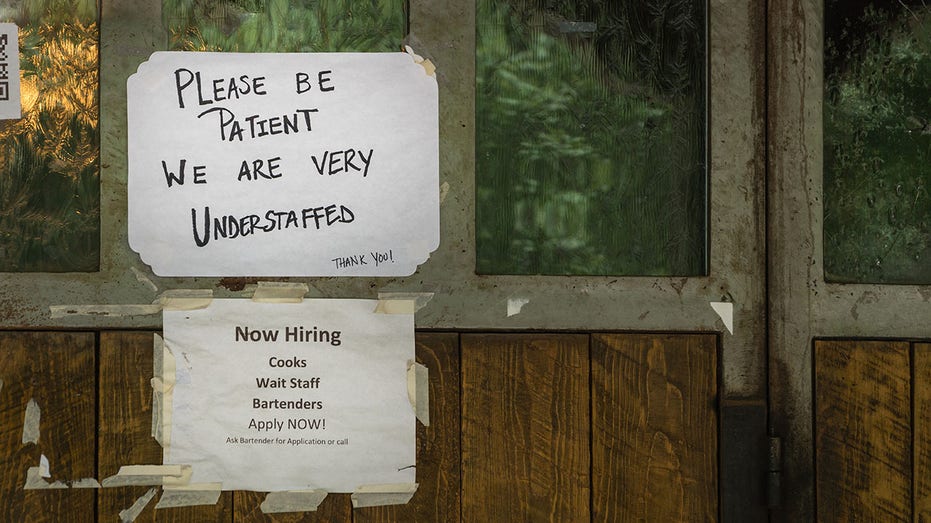As customer problems hit a record high, more people seek ‘revenge’
Latest edition of a long-running survey finds that the share of customers who say they had a service or product problem has doubled since the 1970s
Southwest is ‘overwhelmed’ and clearly got ‘caught short’: Rep. Brandon Williams
Rep. Brandon Williams, R-N.Y., discusses President Biden challenging the GOP on social security and weighs in on the Southwest COO apologizing for the holiday travel chaos.
Americans are encountering more problems with companies’ products and services than ever before, and a higher proportion of them are actively seeking "revenge" for their troubles, a new study has found.
Some 74% of the 1,000 consumers surveyed said they had experienced a product or service problem in the past year. That is up from 66% in 2020, when the study last was conducted, and 56% in 2017. Only 32% told researchers they had experienced a problem in 1976, when a similar version of the study was first conducted.
The percentage of consumers who have taken action to settle a score against a company through measures such as pestering or public shaming in person or online, has tripled to 9% from 3% in 2020, according to the study. That reversed a downward trend with regards to revenge-seeking behavior: The average percentage of customers seeking revenge between 2003 and 2017 was 17%.

Confused female customer angry with rejected online payment having problem paying in internet or debt, frustrated woman holding credit card mad about failed transaction scam fraud concept, close up
"It’s the idea of, if you as a company don’t really seem to care, well then I’m going to take to the streets," said Scott Broetzmann, president and chief executive of Customer Care Measurement & Consulting, which conducts the so-called National Customer Rage Survey with the W.P. Carey School of Business at Arizona State University. The research, which builds on a study first conducted by the White House in 1976, albeit under a different name, found that 32% of complainants posted about their most serious problem on social media—more than double the proportion who did so in the 2020 study.
"Most people now are using a computer, they’re using some form of social media at this point, there’s a democratization of complaining," Mr. Broetzmann said.
But the results echo findings from consulting firm Forrester last year suggesting that the quality of customer experience offered by consumer-facing brands and government agencies declined in the year through April 2022. Forrester said its research studies 96,211 U.S. consumers’ perceptions of 221 organizations.

A traveler wades through the field of unclaimed bags at the Southwest Airlines luggage carousels at Denver International Airport on Dec. 27. (AP/David Zalubowski / AP Newsroom)
And the American Customer Satisfaction Index, which analyzes customer satisfaction with more than 400 companies in 47 industries on a scale of 0 to 100, fell to 73.1 in 2022 from 77 in 2018, the largest decline in the index’s 28-year history. Customer satisfaction is improving in some industries, including consumer shipping, athletic shoes, soft drinks, hospitals, and online and specialty retailing, but is declining across fast food, hotels and gas stations, according to the index’s latest report.
PROFESSIONAL BURNOUT REPORTED BY ABOUT 4 IN 10 US DESK WORKERS, SURVEY FINDS
The rising dissatisfaction is accompanied by more frequent and aggressive complaints, according to the National Customer Rage study.
The latest wave of research found 79% of customers complained about their most serious problem to the company at fault, an increase from 72% in 2020. And 43% said they raised their voice to a customer service representative to show displeasure about their most serious problem, up from 35% in 2017, the most recent previous time the question was asked on the survey.
Customer dissatisfaction hurts companies in more ways than one, Mr. Broetzmann said.
MICHIGAN RESIDENTS, BUSINESSES FURIOUS DAYS AFTER LOSING POWER
"It’s costing companies a lot of money in future business, but there’s also the cost of servicing really angry customers," Mr. Broetzmann said. "If you think about the average number of contacts that really angry customers are making, each time they contact a business, that costs the business money."

Understaffing due to a tight labor market has caused customers to become frustrating when service is not as good as it was pre-pandemic. (iStock / iStock)
Some companies have begun offering expedited customer care as a perk for their paid members, biggest spenders and most loyal fans, borrowing a strategy of airlines and credit card companies.
At the same time, more companies have been turning to automation to cut costs and cover staffing shortages in their standard customer service. Firms push customers towards phone lines and web chats that are handled by artificial intelligence or other technologies that can respond to basic requests, leaving human staff to handle the more complicated service inquiries.
CLICK HERE TO GET THE FOX BUSINESS APP
But that strategy is prone to angering customers further, the rage research found. Respondents named their top customer care frustrations as "being forced to listen to long messages before you’re permitted to speak to a representative" and "figuring out how or where to contact the company," which covers the experience of feeling like a company is hiding its phone number.
At the same time, 25% of respondents said they expected an explanation of why their problem occurred, 24% said they wanted an apology, and 23% said they wanted an assurance that the problem wouldn’t happen again, according to the customer rage research.
Customer service technology such as artificial intelligence is less likely to be able to deliver that craving for empathy than human agents, Mr. Broetzmann said.
"A robot cannot be kind and compassionate," he said.




















